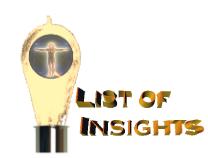
by Keith Sonnanburg, Ph.D.
Clinical Psychologist
Current technology provides us with brain scans (Computer Aided Tomography), neural implants and psychopharmacology. We can measure the structure and activity of the living brain without surgery. We can record and decode signals generated by individual nerve cells. We can evaluate and manipulate the chemical foundations of our perceptions and our moods. Modern medicine reveals the impact of bodily states on our behavioral functioning. These developments eclipse the confusing clamor of opinionated so-called experts who peddle advice as the fruits of psychology.
Even professional psychologists have become enamored with technical advances in neuroscience. Clinical psychologists who pursue prescription privileges, along with neuropsychologists, psychophysiologists, and cognitive scientists, are swept up in the fervor to explain phenomenology and behavior as the result of fluid dynamics, ion exchanges, cellular receptors and dendritic circuitry. This fascination with machinery and biochemistry misses the point of psychology as a unique science.
People have asked psychological questions since the dawn of time. However, scientific psychology is barely more than a century old. During this relatively brief history, psychology has explored varied paths towards a systematic understanding of thoughts, emotions, and behaviors in their socio-ecological context. The function of the brain and nervous system is to enable an organism to adapt to changing environmental circumstances. Attempting to grasp the roots of our own responses, without considering the fit between environmental demands and organismic responses, is folly.
Psychology is the science that describes and influences this interface between contingencies in the environment and the activities of the organism. The discipline has developed sophisticated methodologies for observing, assessing and then intervening in ongoing streams of animal behavior in diverse situations. These are the fruits of psychology that remain independent from contributions made by other fields of study. Psychological tools are crucial for understanding the mechanisms and gyrations of mind, body and spirit.
